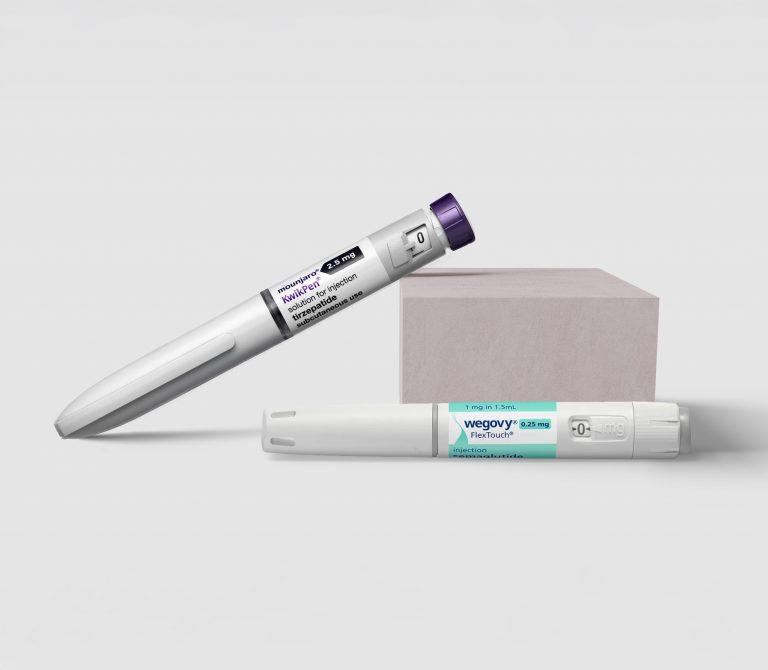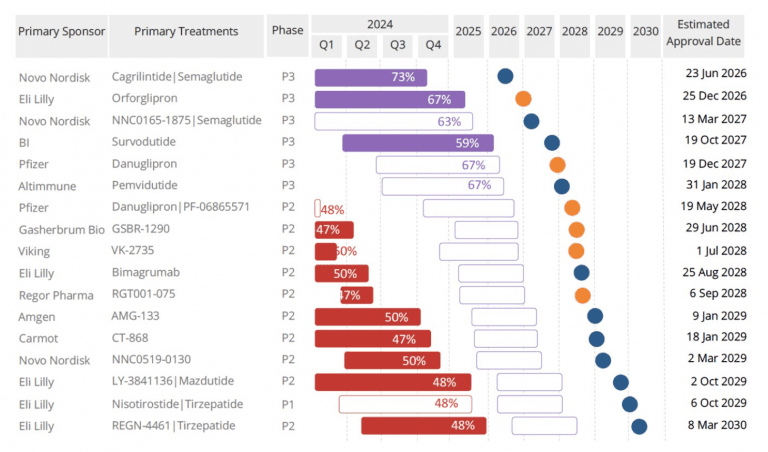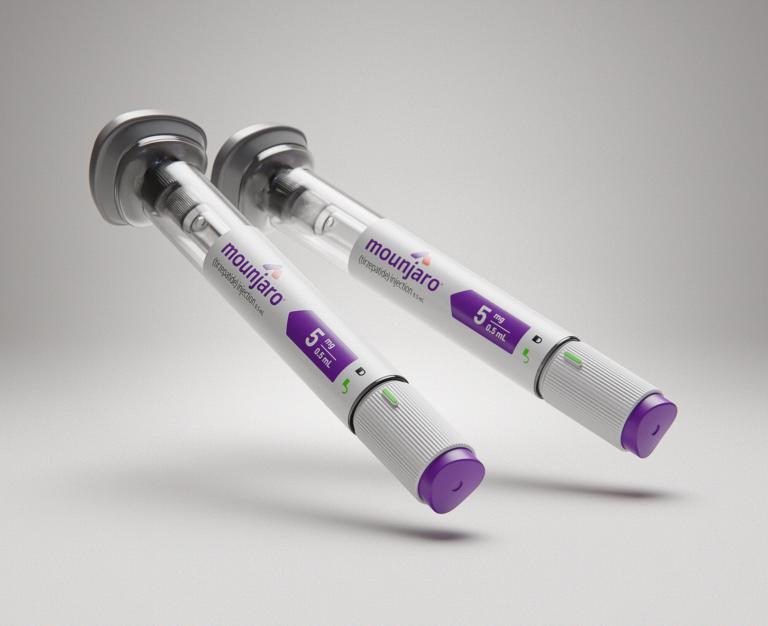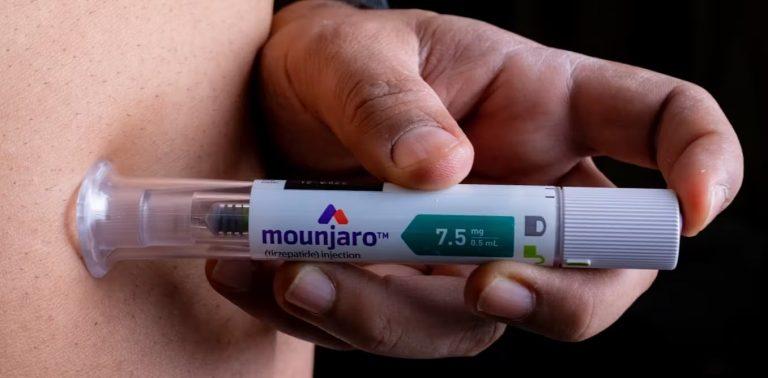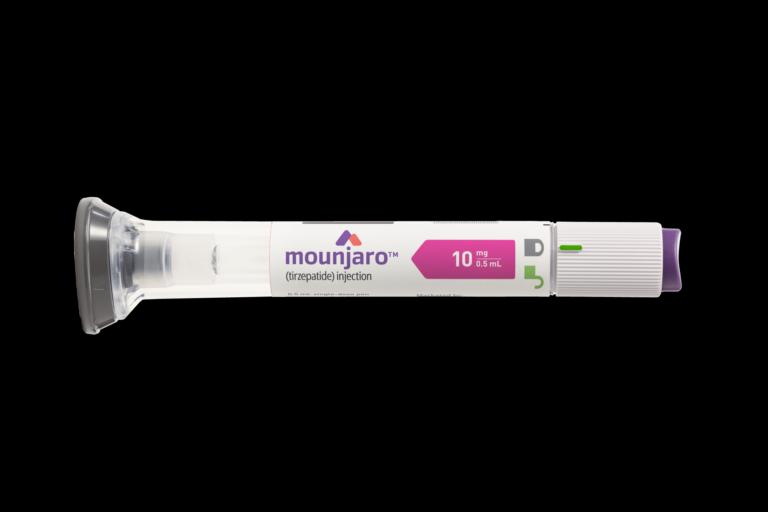

September 16, 2025 (Current Version)
June 23, 2025
Starting today, Mounjaro injections, indicated for weight loss, can be prescribed at GP practices across England, but only for patients meeting stringent criteria.
This rollout is part of the NHS’s ambition to bring revolutionary modern treatments to the public, with Mounjaro serving as a key example of advanced therapies now widely available to address obesity.

NHS England finally rolls out Weight Loss Jabs on the NHS
According to NHS England, a phased rollout is necessary to prioritize those with the greatest medical need, while managing GP workloads and NHS resources effectively. This rollout marks the integration of this drug class into general practice and expands access through community based healthcare services. The long-term goal is broader access to these injections.
Administered weekly, Mounjaro (tirzepatide) helps patients feel fuller, reducing food intake and potentially leading to a 20% reduction in body weight. Initially approved for type 2 diabetes management, it is now also used for obesity treatment as one of the revolutionary new modern treatments helping to transform obesity management.
GPs have raised concerns about insufficient staffing to meet the demand for Mounjaro and are advising patients to contact their surgery only if they meet the eligibility requirements.
Eligibility requirements to be prescribed Mounjaro on NHS
The NHS has very strict guidance about who is eligible to receive Mounjaro. The following criteria applies:
People must have:
a BMI of 40 or over (37.5 if from an ethnic background) – You can check using the NowPatient BMI checker
AND –
4 out of 5 of the following conditions:
- type 2 diabetes
- high blood pressure
- heart and vascular disease
- high cholesterol
- obstructive sleep apnoea.
Unfortunately, if you do not fulfil all of the above criteria, you will not be able to prescribed Mounjaro on the NHS.
Introduction to Mounjaro: A New Era in Weight Loss Treatment
Mounjaro, known generically as tirzepatide, represents a breakthrough in the fight against obesity and its associated health risks. Originally developed to help manage type 2 diabetes by lowering blood sugar levels, Mounjaro has now emerged as a powerful tool in weight loss treatment.
Tirzepatide is marketed by Eli Lilly for weight loss in the United States as the brand name Zepbound.
By slowing how quickly food is digested and helping people feel fuller for longer, Mounjaro weight loss jabs can make a significant difference for those struggling to lose weight and experiencing severe ill health due to obesity.
The rollout of Mounjaro weight loss jabs on the NHS is a pivotal step in tackling the obesity epidemic, which affects nearly a third of UK adults. This new approach aims to reduce the risk of diabetes, high blood pressure, heart disease, and other serious conditions linked to excess weight, offering hope to those for whom traditional weight loss methods have not been effective. As Mounjaro becomes more widely available, it is expected to transform weight loss treatment and improve the health and wellbeing of thousands across England.
Who Qualifies for Mounjaro Prescriptions?
NHS England has outlined that the initial group eligible for Mounjaro through GP surgeries or community clinics must meet all the clinical criteria, including a specific mass index BMI score of 40 or higher (or 37.5 for individuals from minority ethnic backgrounds) and at least four of the following conditions: type 2 diabetes, hypertension, cardiovascular disease, high cholesterol, or obstructive sleep apnoea.
Eligible patients will receive comprehensive support, including regular check-ins, exercise guidance, nutritional advice, and NHS support and advice as part of their care. However, not all GP practices will offer the drug; some prescriptions may come from other primary care providers. Patients are encouraged to visit their local Integrated Care Board (ICB) website for details on availability.
How Do Mounjaro and Similar Weight Loss Drugs Work?
Mounjaro and Wegovy (semaglutide) are injectable medications that suppress appetite, aiding significant weight loss. Dr. Claire Fuller, co-national medical director for primary care at NHS England, emphasized that increased access to these treatments will greatly improve the quality of life for those with severe obesity-related health issues. Professor Kamila Hawthorne, chairwoman of the Royal College of GPs, and other experts have highlighted the crucial role of healthcare professionals in ensuring these medications are appropriately initiated and managed as part of a comprehensive weight management strategy.
However, some GP surgeries have noted that only a small number of their patients will qualify immediately. One practice has requested patience as community-based services are established. Many GPs are concerned about the increased workload and the need for training to appropriately initiate these treatments, as well as the challenges in managing patient expectations and service capacity.
Professor Kamila Hawthorne, chairwoman of the Royal College of GPs, acknowledged the effectiveness of weight-loss injections but highlighted the strain on GP services due to workforce shortages. She urged patients to avoid seeking prescriptions unless they meet the criteria, noting that obtaining the drug through GPs is safer than purchasing it online or over-the-counter. The Royal College of GPs continues to emphasize the importance of providing GPs with adequate training to appropriately initiate and manage these new weight loss medications within NHS protocols.
Will Everyone Eligible Receive Mounjaro Immediately?
The Company Chemists’ Association, representing major pharmacies, suggests that even eligible patients may not receive Mounjaro right away due to limited GP capacity. Malcolm Harrison, the association’s chief executive, noted that while the drug could transform lives, the current infrastructure may struggle to meet demand.
Mounjaro requires monthly monitoring in the early stages, adding to the workload for healthcare providers. Additionally, some staff need training to administer the drug safely. Surgeries must also ensure they can provide the necessary wrap-around care. It is important to emphasize that Mounjaro should be used as a tool alongside the range of other weight loss services, and is most effective when combined with a range of wraparound NHS support, including lifestyle coaching, nutritional guidance, and physical activity programs.
Certain individuals, such as pregnant women, those trying to conceive, breastfeeding mothers, or patients with a history of pancreatitis or specific thyroid tumours, are not eligible for Mounjaro. For those who do not qualify, specialist weight loss services and other weight loss service options remain important pathways to support weight management. Potential side effects should be discussed with a GP or clinic.
Administration and Availability: How and Where to Get Mounjaro
With the rollout of weight loss drugs like Mounjaro, patients in England now have greater access to effective weight loss injections through their GP. To qualify for this weight loss treatment, patients must have a body mass index (BMI) over 40 and at least four additional obesity-related health conditions, such as type 2 diabetes, hypertension, or obstructive sleep apnoea. This marks a shift from previous models, where access to weight loss medications was largely limited to specialist clinics. Now, community-based prescription is possible, making comprehensive weight management strategies more accessible to those in need. However, the expansion of weight loss services brings challenges, including increased workload for GPs and concerns about the supply chain for weight loss injections. The National Pharmacy Association has highlighted the importance of adequate funding and support to ensure the successful rollout of weight loss treatment. As prescription volumes increase rapidly, collaboration between healthcare professionals and pharmacy services will be essential to meet patient needs and deliver effective, wraparound care.
Availability Beyond GP Surgeries
Mounjaro has been available at NHS specialist weight loss clinics since March. Wegovy or Mounjaro is also offered through similar specialist services for specific patient groups. Both drugs can be purchased privately using NowPatient Weight Loss Service. There is a growing focus on expanding access to weight loss drugs with community-based healthcare, integrating these treatments within local NHS and general practice settings to improve weight management support. It is important to address rising obesity and prioritise support for those most at risk, ensuring effective treatments reach those who need them most.
Future Expansion of Mounjaro Access
NHS England’s interim guidance indicates that approximately 220,000 people could access Mounjaro over the next three years, with phased expansions:
- June 2026: Eligibility will extend to those with a BMI of 35–39.9 and four of the five listed conditions.
- April 2027: The drug may be offered to individuals with a BMI of 40 or higher and three of the five conditions.
The NHS aims to provide greater access to weight loss treatments, recognising the potential benefits of weight loss medications in improving health outcomes and supporting comprehensive weight management strategies.
The National Institute for Health and Care Excellence (NICE) will evaluate the rollout’s progress to determine if further expansion is appropriate. Healthcare professionals recognise the potential benefits of these treatments, and the ultimate goal is to end the obesity epidemic. Estimates suggest 3.4 million people could be eligible over the next 12 years.
Mounjaro in the Rest of the UK
In Wales, Mounjaro is available through NHS specialist weight management services, with potential plans to involve primary care in the future. Northern Ireland is developing a regional obesity management service, which will include community-based support and access to weight-loss medications. In Scotland, very few NHS patients currently receive weight-loss drugs, as availability depends on local health board decisions.
Impact and Expectations: What Mounjaro Means for Patients and the NHS
The introduction of Mounjaro is expected to have a profound impact on both patients and the NHS. Over the next three years, around 220,000 people with the greatest need are expected to receive Mounjaro through the NHS, helping them lose weight and reduce their risk of high blood pressure, heart disease, and obstructive sleep apnoea. While weight loss jabs like Mounjaro can aid weight loss and help people lose weight, they are most effective when used as part of a comprehensive weight management strategy combining lifestyle coaching, exercise, and nutritional guidance. Without these foundational lifestyle changes, patients may experience rebound weight gain once treatment ends. The rollout of weight loss jabs continues to be monitored to ensure that the benefits of weight loss are sustained and that the NHS can manage the increased demand for weight loss services. By integrating weight loss medications with community-based support and lifestyle advice, the NHS aims to make a significant difference in tackling obesity and improving long-term health outcomes.
Medical Disclaimer
NowPatient has taken all reasonable steps to ensure that all material is factually accurate, complete, and current. However, the knowledge and experience of a qualified healthcare professional should always be sought after instead of using the information on this page. Before taking any drug, you should always speak to your doctor or another qualified healthcare provider.
The information provided here about medications is subject to change and is not meant to include all uses, precautions, warnings, directions, drug interactions, allergic reactions, or negative effects. The absence of warnings or other information for a particular medication does not imply that the medication or medication combination is appropriate for all patients or for all possible purposes.





